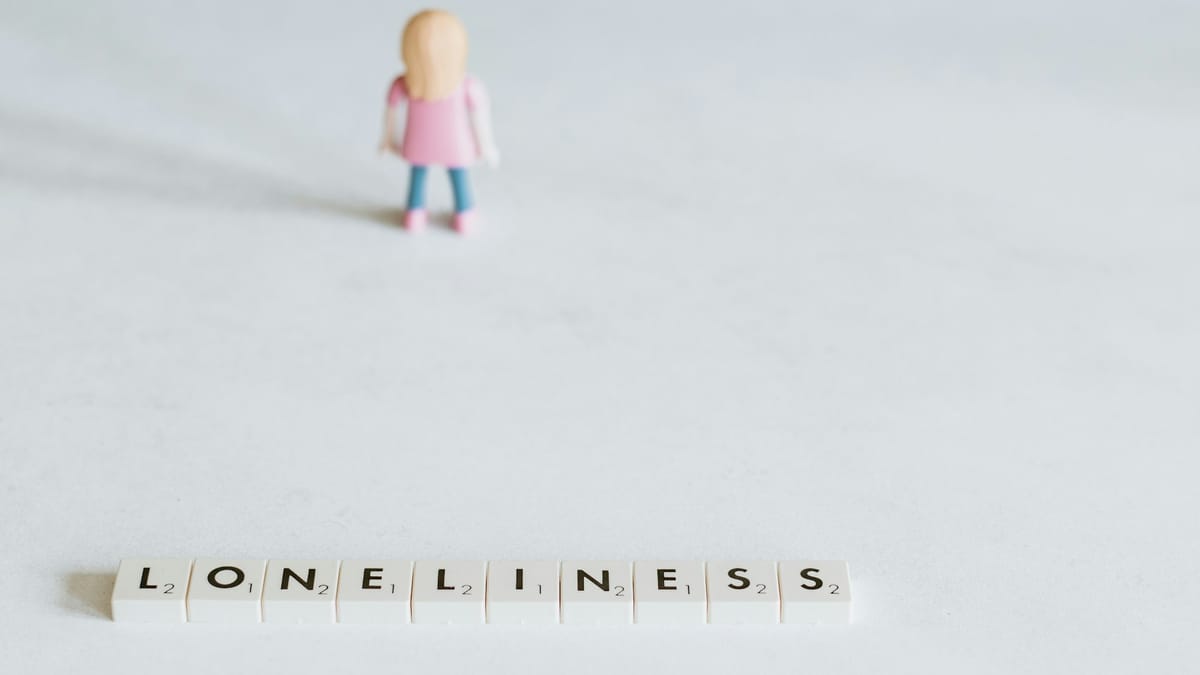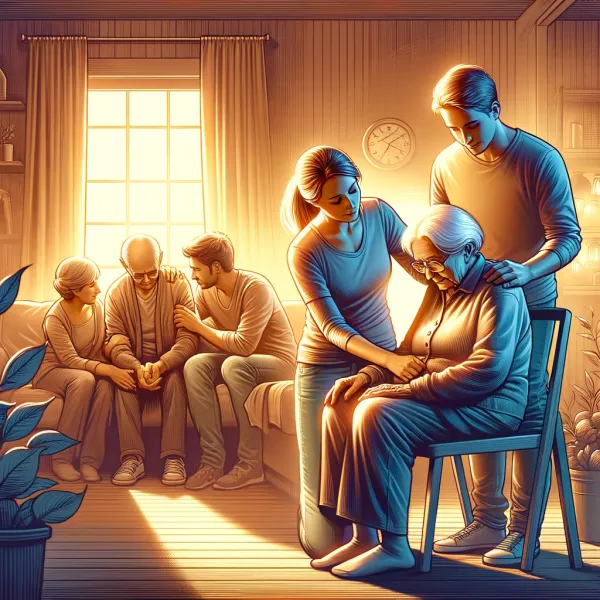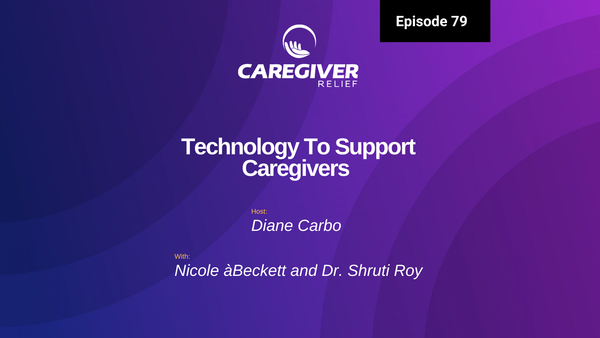What Causes Depression?

Depression is a serious mental health disorder that can have a devastating impact on an individual’s life. It is important to understand the potential causes of depression in order to seek treatment and support.
Depression can show itself in many ways, including feeling sad, anxious, or empty; losing interest in activities once found enjoyable; having difficulty concentrating; experiencing changes in sleep patterns; and feeling tired or low in energy. It is important to take these indicators seriously and seek help if needed.
The cause of depression can vary from person to person, and there are a number of potential contributing factors. In this post, we will explore the biological, environmental, social, cognitive, developmental, substance abuse, spiritual, and grief causes of depression. We will also discuss the various treatment options available to those suffering from depression.
Defining Depression
Depression is an emotional state characterized by feelings of sadness, isolation, lack of interest in daily activities and difficulty in functioning in society. It is diagnosed as a mental health disorder when these symptoms become so severe that it interferes with an individual’s ability to live their life. Medical professionals typically define depression as a mood disorder that is diagnosed when an individual has had persistent depressive feelings for at least two weeks.
For those living with depression, it may manifest itself in various ways. Physical symptoms such as fatigue or restlessness can arise. Changes in sleep and appetite may also occur. Emotional symptoms may include feeling hopeless, worthless, numb or having difficulty expressing emotions. Cognitive symptoms may involve the inability to concentrate or make decisions. Finally, behavioral changes can be seen through withdrawal from activities, increased irritability or recklessness.
Biological Causes of Depression
Depression can be caused by various biological factors, such as a genetic contribution, chemical imbalance, or physical injury or illness. Many researchers in the medical field have linked depression to biological influences.
Genetic influence is one possible cause of depression, as it involves the transfer of certain genes from one generation to the next. It is thought that if an immediate relative has suffered from depression, there is a greater risk of an individual developing the disorder. Further, recent scientific research suggests that people with certain gene variants may be more likely to develop depression.
Another potential cause of depression is imbalances of chemicals in the brain. Neurotransmitters, such as serotonin and dopamine, are responsible for regulating emotions and moods. A lack of these or other neurotransmitters can lead to feelings of depression.
In some cases, a physical injury or illness can trigger depressive symptoms. Surgery, cancer, and other chronic health conditions may lead to depression, as these can cause intense physical and mental stress. People who experience severe pain or trauma may also be at an increased risk of developing depression.
Environmental Causes of Depression
Environmental factors, such as the ones we are exposed to in our everyday lives, can contribute to the development of depression. Traumatic events, difficult relationships, and an unsupportive home life can all add up to take their toll on one’s emotional wellbeing.
Traumatic events refers to any type of life-altering experience that leaves an individual feeling overwhelmed or powerless. It could include anything from physical or sexual abuse, natural disasters, severe accidents, or combat. Such traumatic events can have long-term effects and lead to depression.
The quality of a person's relationships has an impact on their mental health. Unhealthy relationships, whether with a partner, family member, or friend, can bring about stress and emotional pain. Such an environment can create feelings of worthlessness, leading to depression.
Finally, an unsupportive home life can be a strong contributor to depression. An unsupportive home life may involve neglect, unkind words, constant criticism, or violence. This type of environment can make it difficult to develop a healthy sense of self-esteem and security, which can result in depression.
It is important to remember that depression can be caused by several factors, and environmental causes can play an important role. If you feel depressed and believe your environment may be contributing to this depression, it is important to seek professional help.
Social Causes
When discussing potential causes of depression, it's important to examine the impact of social relationships and experiences on our mental health. The connections we form with those around us, and the events we experience, can have a powerful effect on our emotions and mood. When facing certain challenges in our lives, such as the death of a loved one, relationship issues, or any kind of emotional trauma, people are more likely to develop depression.
Research shows that a person’s social environment can contribute to the development of depression, particularly if it has been characterized by stress, isolation, or neglect. This could include growing up in a household with an unsupportiveparent or guardian, having a close relative or friend suffer from depression, or being exposed to major stressful life events, such as divorce or financial hardship.
Additionally, social connections and experiences can influence the way we think and feel about ourselves. If people’s relationships are lacking in positive reinforcement or affirmation, they may be prone to feelings of worthlessness or hopelessness. Feeling a sense of disconnectedness or loneliness can lead to depression.
Cognitive Causes of Depression
Depression doesn’t always have an obvious cause, but it can often be linked to how we think about ourselves and the world around us. Cognitive causes of depression include the thinking styles, beliefs, and expectations we hold.
Specifically, having a negative or pessimistic attitude towards oneself, as well as feeling like the world is an unpredictable and uncontrollable place, can increase the likelihood of developing depression. Negative thoughts are often accompanied by feelings of helplessness and hopelessness, and may lead to the development of depressive symptoms.
Furthermore, having a sense of learned helplessness – which is believing that outcomes are determined by forces outside one’s control – is thought to contribute to depression. Additionally, perfectionism and setting unrealistic expectations for oneself may also lead to the onset of depression.
It’s important to recognize the role our thinking styles and beliefs play in our mental health and well-being. Often, these patterns of thought become deeply ingrained and difficult to identify and shift on our own. If you’re aware of these potential cognitive causes and need help changing your thinking styles, seeking out assistance from a mental health professional may be beneficial.
Developmental Causes
Everyone faces difficult times in life, but for some, it can become too much. Special life events, such as the death of a loved one, a significant job loss, or major changes in your life can all lead to depression. Studies have suggested that people who experienced these occurrences are more vulnerable to developing depression.
The stress associated with these life events can be overwhelming and cause a person to lose hope. Though grieving is natural and necessary, sometimes people don’t process their grief correctly. This unresolved grief can contribute to depression. Experiences of rejection, abandonment, or abuse in childhood are especially likely to increase the risk of developing depression later in life.
It’s vital to recognize the role that life events can play in developing depression. It's important to find healthy ways to cope with these difficult experiences, whether through therapy, self-care, or support from friends and family.
Substance Abuse
Unfortunately, substance abuse is often linked to depression. This can include alcohol, drugs, and other potentially addictive substances. Abuse or overuse of these substances can cause changes in the body and brain that can lead to depression. Abusing drugs and alcohol can also increase the risk of suicidal thoughts.
Using drugs and alcohol to cope with negative feelings can lead to addiction and a cycle of substance abuse and mental health problems. It’s important to seek help if you or someone you know is struggling with substance abuse and depression.
- Alcohol abuse can lead to depression.
- Substance abuse can cause physical and chemical changes in the body and brain that can lead to depression.
- Using drugs or alcohol to cope with negative feelings can lead to an addiction cycle that increases the risk of suicidal thoughts.
- It’s important to seek help if you or someone you know is struggling with substance abuse and depression.
Exploring the Role of Spiritual Causes in Depression
When trying to understand the potential causes of depression, it’s important to consider the role of spiritual issues, beliefs, and practices. For some individuals, unresolved spiritual challenges and poor spiritual health can play a role in developing depression.
Spirituality can be described as a connection to something bigger than oneself, whether that is nature, a higher power, religious beliefs, or a sense of purpose. It can also refer to the inner journey of personal growth and transformation. However, when faced with difficult events or challenging beliefs, it can be difficult to make sense of and connect to our spiritual selves.
When individuals are struggling with spiritual issues, this can cause feelings of despair or hopelessness. These feelings can lead to difficulty in connecting with others and finding purpose, both of which can be at the root of depression. This can be particularly true when an individual has lost faith in their spiritual beliefs or no longer feels connected to their spiritual community.
It can also be difficult to cope with life circumstances that seem unfair or unexplainable, such as death, loss, and suffering. When faced with these incredibly hard things in life, individuals can be left feeling betrayed by their spirituality or helpless in their faith. If this unresolved grief and pain become too difficult to deal with, depression can set in.
It is important to note that experiencing depression doesn’t necessarily mean there is something wrong with one’s spiritual beliefs or practices. Rather, it’s something to be explored and understood so that coping strategies can be developed over time.
Grief Causes
Experiencing the loss of a loved one is always painful. It can be an intense, overwhelming experience, full of complex emotions. Grief affects us deeply and can lead to depression if it isn’t properly worked through and released.
When someone experiences grief, they go through several stages including shock, anger, acceptance, and even bargaining. Each individual may go through these stages differently and at varying lengths, but it is important to acknowledge each step and work through them in order to heal. When grief is not adequately processed, it can become stuck or linger, leading to depression.
Grief can also be related to other losses, such as the end of a relationship, the death of a pet, a job loss, or even the loss of a dream. Again, it is important to recognize and process these losses in order to move forward. Ignoring these feelings and trying to move on without acknowledging them can lead to emotional stagnation and depression.
Treatment Options for Depression
When struggling with depression, there are a variety of different treatment options available, including medication, counseling, lifestyle changes, and more. It is important to consider all your options in order to find the best possible treatment plan for yourself or someone close to you.
Medication
Antidepressant medications can be prescribed by a physician to help reduce symptoms of depression. Most commonly, these are selective serotonin reuptake inhibitors (SSRIs) that help to boost levels of serotonin in the brain. Other types of antidepressants may also be prescribed based on individual needs.
Counseling
Psychotherapy can be a helpful option for those struggling with depression. Talking with a therapist or counselor can help to explore both the internal and external influences on depression, identify triggers and coping strategies, and provide additional support.
Lifestyle Changes
There are a number of lifestyle changes you can make to cope with depression. These include getting proper amounts of sleep, eating healthy, exercising regularly, avoiding alcohol and drugs, and engaging in activities that bring joy.
Alternative Treatment
In addition to conventional treatments, many people have found alternative treatment options to be helpful, such as acupuncture, mindfulness, yoga, and journaling. Consult with your medical professional before attempting any alternative treatments.
Depression is a serious condition that can have a wide variety of causes, from biological and environmental factors to social and cognitive influences. Each individual may experience depression differently, depending on how these underlying elements manifest in their life. It is important to understand the potential causes of depression in order to seek appropriate treatment and support.
This guide has outlined some of the major contributors to depression, including biological causes such as genetic or chemical factors, environmental triggers like abuse or trauma, and social dynamics like relationships or expectations. We have also discussed more specific issues, such as developmental and spiritual causes of depression or the link between substance abuse and depression.
Finally, there are a range of treatment options available for those struggling with depression, including therapies, medications, lifestyle changes, and other forms of support. As we have seen, understanding the potential causes of depression is essential in providing effective support and care for those who need it.
If you or someone you know is suffering from depression, there are numerous resources available to help. Seek out professional help in order to identify the best treatment options for your individual needs. With the right support, it is possible to manage and even overcome this difficult condition.
You might also like this article:






